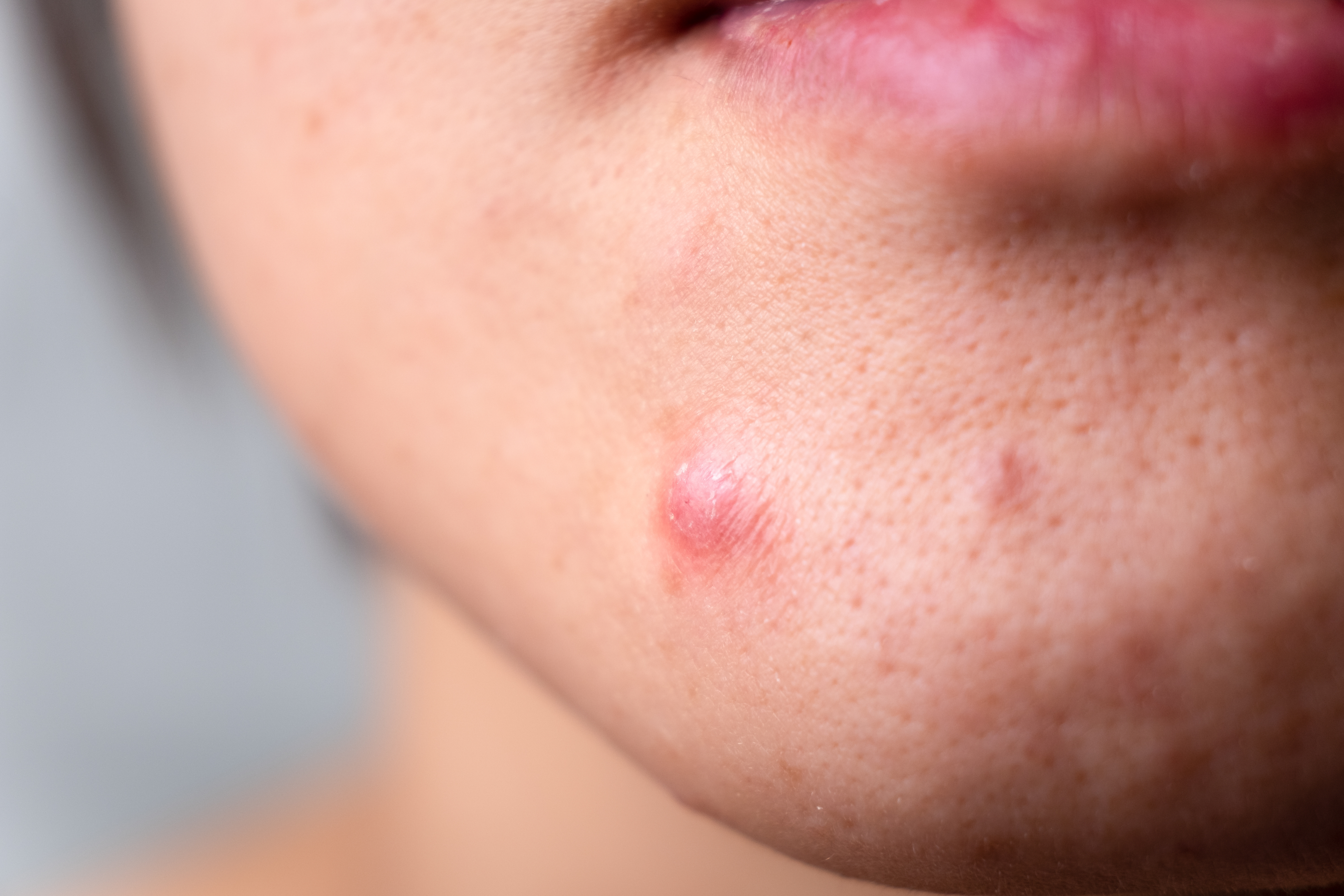22 Unexpected Physical Symptoms Caused by Chronic Stress
Think stress is just "all in your head"? Prepare to be surprised. While we often associate stress with a racing mind or frayed nerves, its invisible fingerprints can mark our physical well-being in ways many of us never suspect. Beyond fleeting tension, your body stages a complex, often silent, physiological response to pressure that can manifest in baffling aches, mysterious digestive woes, or sudden skin flare-ups. These aren't mere inconveniences; they're crucial signals. As research increasingly uncovers the profound mind-body connection, understanding these covert symptoms becomes vital. We’ve now expanded our deep dive to reveal 22 surprising physical symptoms of stress, aiming to unravel how this silent adversary can quietly impact your health. Get ready to decode your body's hidden stress signals and discover empowering ways to listen and respond.
1. The Science Behind Stress: A Biological Perspective

To fully appreciate the physical impact of stress, it's essential to understand the biological mechanisms at play. Stress triggers the body's "fight or flight" response, a survival mechanism that prepares us to face threats. This response is orchestrated primarily by the hypothalamus, which signals the adrenal glands to release stress hormones like cortisol and adrenaline. These hormones initiate a cascade of physiological changes designed to enhance our ability to cope with immediate danger. However, in the context of modern life, where stressors are often psychological rather than physical, this response can become maladaptive. Chronic activation of the stress response can lead to a host of physical symptoms, as the body's systems struggle to maintain balance. Understanding this biological foundation is crucial for recognizing the hidden symptoms of stress and underscores the importance of stress management in maintaining health.
2. The Skin: Stress's Visible Canvas

The skin, our largest organ, often reflects the state of our internal health. Stress can manifest visibly through various skin conditions, such as acne, eczema, and psoriasis. These conditions can flare up or worsen under stress due to the inflammatory response triggered by stress hormones. Cortisol, in particular, has been shown to increase oil production in the skin, leading to clogged pores and acne breakouts. Furthermore, stress can impair the skin's barrier function, making it more susceptible to irritation and infection. This can result in heightened sensitivity, redness, and even premature aging. Understanding the connection between stress and skin health is vital, not only for cosmetic reasons but also for the overall well-being, as skin conditions can significantly impact self-esteem and quality of life.
3. Cardiovascular System: The Heart Under Siege

The cardiovascular system is highly sensitive to stress, with the potential for significant health implications. Stress hormones like adrenaline increase heart rate and blood pressure, preparing the body for action. While this response is beneficial in short bursts, chronic stress can lead to hypertension, increasing the risk of heart disease and stroke. Moreover, stress can contribute to the development of atherosclerosis, a condition where plaque builds up in the arteries, narrowing them and restricting blood flow. This can lead to serious cardiovascular events. Recognizing the impact of stress on heart health is crucial for preventive measures and underscores the importance of stress management in reducing cardiovascular risk.
4. Digestive System: Stress and the Gut-Brain Axis

The digestive system is intricately connected to our mental state through the gut-brain axis, a bidirectional communication pathway between the gut and the brain. Stress can disrupt this communication, leading to various gastrointestinal issues. Conditions such as irritable bowel syndrome (IBS), indigestion, and ulcers can be exacerbated by stress. Stress alters gut motility and increases the production of stomach acid, which can lead to discomfort and pain. Additionally, stress can affect the balance of gut microbiota, the beneficial bacteria in our intestines, which play a crucial role in digestion and immune function. Understanding the impact of stress on digestion highlights the importance of holistic approaches to managing stress and maintaining gut health.
5. Immune System: Stress's Silent Saboteur

The immune system is another area where stress exerts a profound impact. Chronic stress can suppress immune function, making the body more susceptible to infections and illnesses. Stress hormones like cortisol can inhibit the production of cytokines, proteins that are essential for immune response, leading to decreased immunity. Moreover, stress can exacerbate autoimmune conditions, where the immune system mistakenly attacks the body's own tissues. This can lead to flare-ups of conditions such as rheumatoid arthritis and lupus. Understanding the relationship between stress and immune function underscores the importance of stress management in maintaining a robust immune system and overall health.
6. Musculoskeletal System: Stress-Induced Tension

Stress often manifests in the musculoskeletal system as tension and pain. When stressed, muscles contract and become tense, leading to discomfort and pain, particularly in the neck, shoulders, and back. This tension can result in headaches and migraines, further exacerbating stress levels in a vicious cycle. Chronic stress can also contribute to conditions such as tension headaches and temporomandibular joint (TMJ) disorders. Understanding the impact of stress on the musculoskeletal system is crucial for developing strategies to alleviate tension and pain, such as physical therapy, exercise, and relaxation techniques.
7. Respiratory System: Stress and Breathing Patterns

The respiratory system is directly affected by stress, often resulting in altered breathing patterns. Stress can lead to rapid, shallow breathing, which can exacerbate anxiety and panic attacks. This type of breathing reduces the amount of oxygen reaching the body's tissues, leading to fatigue and decreased cognitive function. In individuals with pre-existing respiratory conditions like asthma or chronic obstructive pulmonary disease (COPD), stress can trigger flare-ups and worsen symptoms. Recognizing the impact of stress on breathing patterns is essential for developing effective coping strategies, such as breathing exercises and mindfulness practices, to improve respiratory health and overall well-being.
8. Sleep Patterns: Stress's Impact on Restorative Rest

Stress can significantly disrupt sleep patterns, leading to insomnia and poor sleep quality. The stress hormone cortisol is inversely related to melatonin, the hormone responsible for regulating sleep. Elevated cortisol levels can interfere with the body's natural sleep-wake cycle, making it difficult to fall asleep or stay asleep. Chronic sleep deprivation due to stress can have far-reaching effects on physical and mental health, contributing to fatigue, impaired cognitive function, and increased risk of chronic diseases. Understanding the relationship between stress and sleep is crucial for developing effective strategies to improve sleep quality, such as relaxation techniques and sleep hygiene practices.
9. Weight Fluctuations: Stress and Metabolism

Stress can lead to significant weight fluctuations, either through weight gain or weight loss. Stress hormones like cortisol can increase appetite and cravings for high-calorie, high-fat foods, leading to weight gain. Additionally, stress can alter metabolism, affecting how the body processes and stores energy. Conversely, some individuals may experience weight loss due to stress-induced loss of appetite or gastrointestinal issues. Understanding the impact of stress on weight and metabolism is crucial for developing healthy coping strategies and maintaining a balanced diet, which can help mitigate the physical effects of stress on the body.
10. Reproductive System: Stress's Influence on Fertility

The reproductive system is highly sensitive to stress, with significant implications for fertility and reproductive health. In women, stress can disrupt the menstrual cycle, leading to irregular periods or amenorrhea (absence of menstruation). Stress can also affect hormone levels, impacting ovulation and fertility. In men, stress can affect sperm production and quality, reducing fertility. Understanding the impact of stress on the reproductive system highlights the importance of stress management for individuals trying to conceive and underscores the need for holistic approaches to reproductive health.
11. Nervous System: Stress's Impact on Neurological Health

The nervous system is the primary mediator of the stress response, and chronic stress can have significant implications for neurological health. Prolonged stress can lead to changes in brain structure and function, affecting memory, cognition, and emotional regulation. Stress has been linked to the development of mood disorders such as anxiety and depression. Understanding the impact of stress on the nervous system is crucial for developing effective strategies to support mental health and cognitive function. This includes practices such as mindfulness, meditation, and cognitive-behavioral therapy, which can help mitigate the neurological effects of stress.
12. Long-Term Health Implications: The Cumulative Effect of Stress

The cumulative effect of chronic stress can have significant long-term health implications. Prolonged exposure to stress can contribute to the development of chronic diseases such as heart disease, diabetes, and depression. Understanding the long-term impact of stress is crucial for developing preventive strategies and promoting overall health and well-being. Addressing stress through lifestyle changes, such as regular exercise, healthy eating, and stress management techniques, can help mitigate the long-term effects of stress and improve quality of life. Recognizing the importance of stress management is essential for maintaining health and preventing the development of chronic diseases.
13. Unexpected Hair Loss or Thinning

If you're noticing more hair in your brush or a thinning scalp, chronic stress might be the silent culprit. A condition called telogen effluvium can be triggered by significant physiological or emotional stress, pushing a large number of hair follicles into a resting phase prematurely. Months later, these hairs shed. While often temporary, this stress-induced hair loss can be distressing. Recognizing this connection is vital, as managing stress levels through relaxation techniques and a healthy lifestyle can, over time, help restore your hair’s natural growth cycle and vitality, proving beauty really is more than skin deep.
14. Persistent Jaw Clenching & Nightly Teeth Grinding (Bruxism)

Waking up with a sore jaw, unexplained headaches, or sensitive teeth? You might be unconsciously clenching your jaw or grinding your teeth (bruxism), especially during sleep—a common physical outlet for pent-up stress and anxiety. This often-unnoticed habit, driven by tension, can lead to dental damage, temporomandibular joint (TMJ) disorders, and persistent facial pain. Becoming aware of this connection allows you to explore stress-reduction techniques, consider a night guard, and consciously relax your jaw during the day, protecting both your smile and your peace of mind from stress’s stealthy grip.
15. Episodes of Dizziness or Lightheadedness

Sudden spells of dizziness, lightheadedness, or feeling like you might faint can be deeply unsettling, and chronic stress is a surprising potential trigger. Stress can affect your autonomic nervous system, which regulates blood pressure and heart rate. It can also lead to hyperventilation (rapid, shallow breathing), altering carbon dioxide levels in your blood and causing these sensations. While it’s crucial to rule out other medical causes, understanding that stress can directly impact your body's equilibrium highlights the importance of grounding techniques and stress management for maintaining both physical and mental balance.
16. Flare-ups of Hives or Unexplained Rashes

That sudden itchy rash or outbreak of hives that appears from nowhere could be your skin screaming "stress!" The immune system, heavily influenced by stress hormones like cortisol, can go into overdrive, triggering inflammatory responses in the skin. This can lead to the release of histamine, causing hives (urticaria) or worsening conditions like eczema. These dermatological SOS signals are often a visible manifestation of internal turmoil. Recognizing stress as a potential trigger is key to managing these flare-ups through both skincare and dedicated stress-reduction practices.
17. Increased Sensitivity to Sound or Light

Finding everyday noises gratingly loud or bright lights unusually harsh? Heightened sensory sensitivity can be a subtle yet significant physical symptom of chronic stress. When your nervous system is in a prolonged state of high alert (the "fight-or-flight" response), your senses can become overstimulated and more easily overwhelmed. This can manifest as photophobia (light sensitivity) or hyperacusis (sound sensitivity), making ordinary environments feel intense and draining. Addressing the root stress can help recalibrate your sensory processing and restore a sense of calm in your surroundings.
18. Frequent Sighing or a Sensation of "Air Hunger"

Do you find yourself sighing deeply and frequently, or feeling like you just can’t get a satisfying breath, even when you’re not exerting yourself? This "air hunger" or excessive sighing can be a physical manifestation of your body trying to regulate itself under stress. It’s often linked to subtle changes in breathing patterns (like shallow breathing or holding your breath unconsciously) induced by anxiety. These actions are your body’s attempt to reset its oxygen and carbon dioxide balance. Noticing this pattern can be a cue to practice calming breathing exercises and address underlying stressors.
19. Persistently Cold Hands and Feet

Even in a warm room, do your hands and feet often feel like blocks of ice? Chronic stress might be diverting your circulation. During the fight-or-flight response, blood flow is prioritized to major muscle groups and vital organs, preparing for action, and shunted away from extremities like fingers and toes. If you're constantly stressed, this physiological response can become a more persistent state, leading to chronically cold hands and feet. This often-overlooked symptom is a clear physical indicator that your body’s stress system is working overtime.
20. A Nagging Sore Throat or Lump-in-Throat Sensation (Globus Sensation)

That persistent tickle, unexplained sore throat, or the distinct feeling of a lump stuck in your throat (known as globus sensation or globus pharyngeus) can be a surprising physical byproduct of chronic stress and anxiety. Muscle tension is a common stress response, and this includes the small muscles in and around your throat and esophagus. When these muscles tighten due to stress, it can lead to these uncomfortable and often worrying sensations. While other medical causes should be ruled out, recognizing stress as a potential trigger can guide effective relief strategies.
21. Noticeable Changes in Body Odor

This might be one of the more surprising and "beyond the obvious" symptoms: chronic stress can actually change your body odor. Stress activates apocrine glands (found mainly in armpits and anogenital areas), which produce a type of sweat rich in proteins and lipids. When this sweat is broken down by skin bacteria, it can result in a more pungent odor than sweat produced by eccrine glands (which are activated by heat). Heightened cortisol levels associated with chronic stress can contribute to this, subtly signaling your body's internal state to the outside world.
22. Phantom Vibrations or "Ringing Phone Syndrome"

Ever sworn you felt your phone vibrate in your pocket or heard it ring, only to find no notification? While not exclusively caused by stress, this phenomenon, sometimes called "phantom vibration syndrome" or "ringxiety," can be heightened or triggered by a hyper-alert nervous system. When you're chronically stressed, your brain is often on high alert for any potential demand or stimulus. This can lead to misinterpreting subtle sensory inputs as important alerts, a fascinating and very modern physical manifestation of an overactive stress response.
Decoding Stress: Your Body's Silent Signals for Change

As we've uncovered these 22 surprising physical symptoms, it becomes strikingly clear that stress is far more than an emotional burden; it's a powerful physiological force that speaks through our bodies in myriad, often hidden, ways. From unexpected hair loss and persistent dizziness to changes in sensory perception, these signals are your body's plea for attention and balance. Recognizing these manifestations is the crucial first step towards taking proactive control. By learning to listen to these subtle (and sometimes not-so-subtle) cues, we can move beyond simply enduring stress to actively managing its impact, fostering a deeper mind-body connection, and ultimately, paving the way for enhanced health, resilience, and genuine well-being in our demanding modern lives.